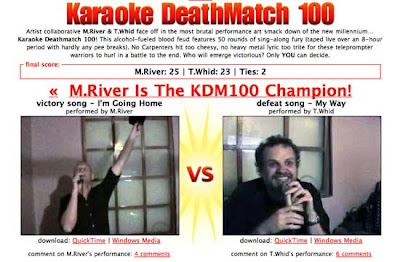
Wow, check this course out for the Spring, For DAC conceptual credit elective.
English 312: Topics in Film Studies
Cinema and Digital Culture
Spring 2011
Instructor: Tami Williams
Office: Curtin 474 (by appt.) or our D2L site “Questions” forum.
E-mail: tamiw@uwm.edu
COURSE DESCRIPTION:
From the kinetoscope to the iPhone, moving image culture has never stopped reinventing or making itself anew. We will examine the nature of "new media" from a wide variety of perspectives: technological, economic, and particularly cultural and aesthetic. We will look at how new media, such as digital photography, video games, virtual reality, and the World Wide Web, refashion earlier media forms, such as cinema, as well as how the latter is itself influenced by emerging media. In addition to the shifts and changes effected by digital technologies in contemporary society, we will consider the place of the Self within the context of new media. To this end, in addition to reading critical texts, students will have opportunities to explore these questions on a personal and practical level, from blogging to video gaming. Class discussions will focus on weekly readings, film viewings and web visits.
There are no prerequisites for this course and you are not required to have any prior knowledge of media studies. However, you are expected to treat the material as a legitimate object of study. We will begin with the premise that film, and digital media offer much more than “entertainment” and, accordingly, a study of these forms is a serious undertaking that requires rigor and diligence.


